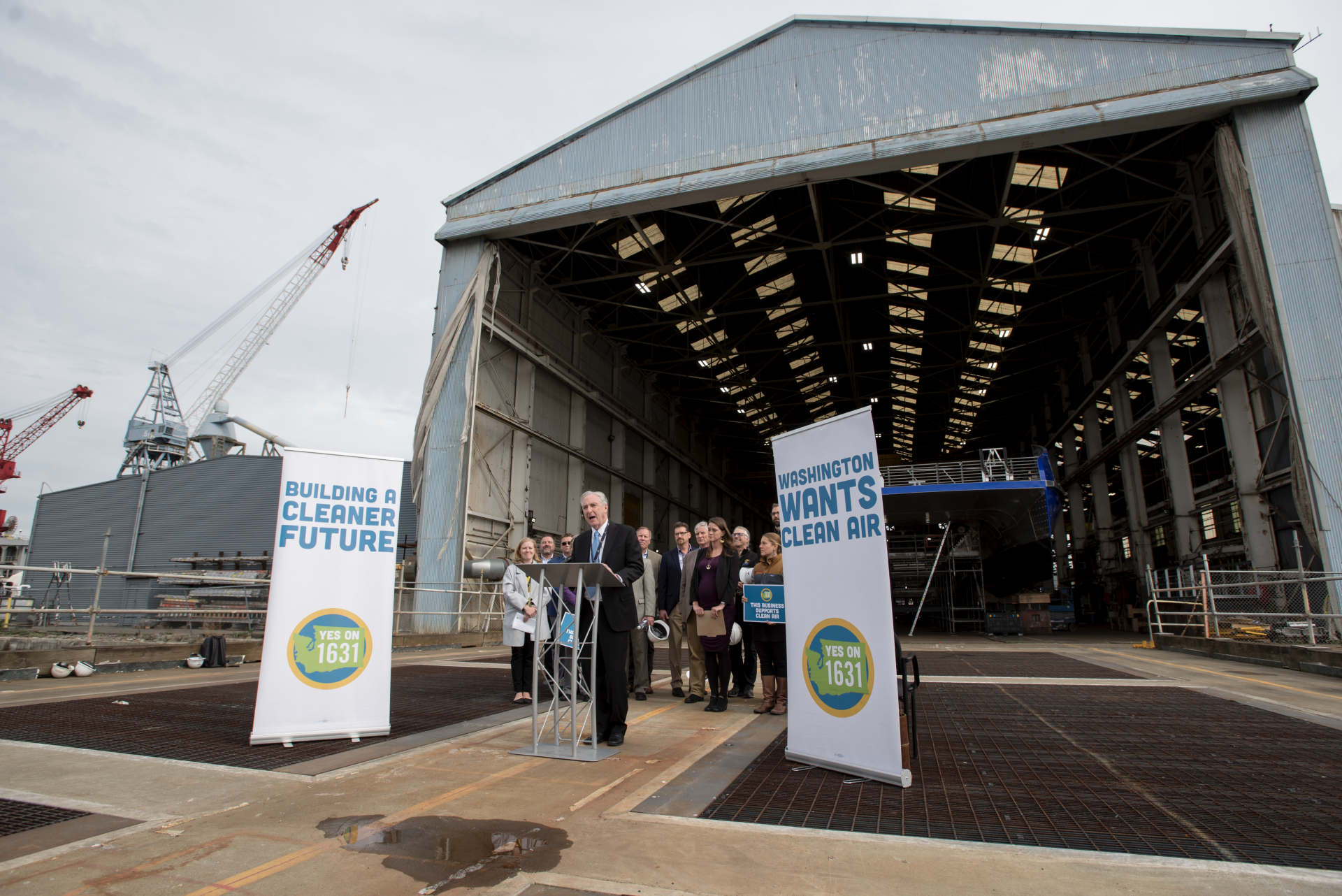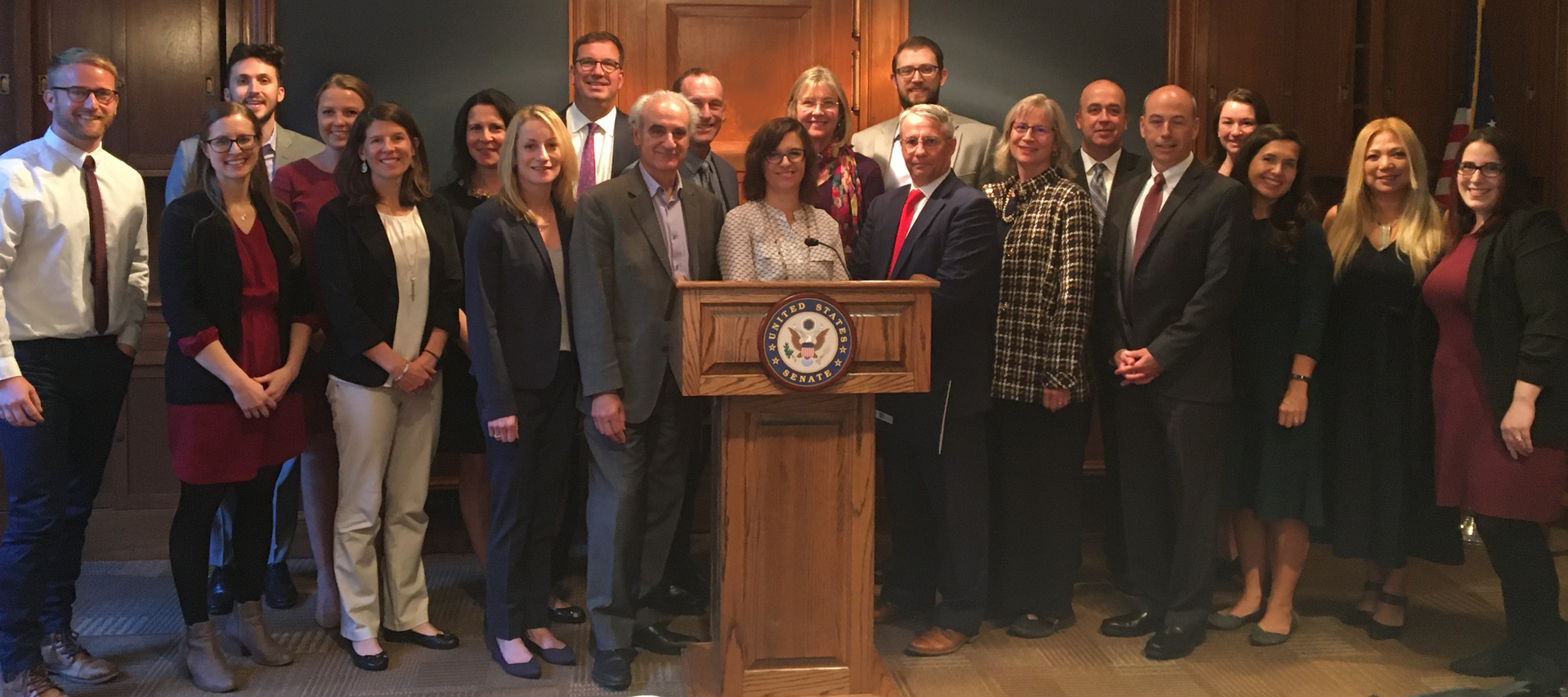The challenge
Hospitals and health professionals serve on the front lines of climate change, bearing the cost of more frequent extreme weather events and changing disease burdens. Public investments in infrastructure and preparedness affect the ability of a hospital to be “climate ready.” Hospitals and health systems are large purchasers of energy, so their financial viability – as well as the cost of patient care – is impacted by local and state energy policy.
Hospitals and health systems have a direct stake in climate solutions and clean energy policies and must be at the table when these important decisions are made. As valued anchor institutions, hospitals are also essential partners for advancing mitigation and climate resilience strategies in the communities they serve.
“Given the size and scope of the health care sector in the U.S. and globally, health care climate leadership has to the opportunity to play a major role in mitigating the coming changes.”
– Gary Cohen, co-founder of Health Care Without Harm and and Kate Walsh, Boston Medical Center, president and CEO in Modern Healthcare.

Our vision
In addition to reducing emissions from their own operations, hospitals can protect patients and communities from the health impacts of climate change by advocating for local, state, and national policies that support a sustainable future. The health sector can leverage its purchasing power to accelerate the transition to a low-carbon, climate-resilient economy.
Making health and health care integral to climate policymaking at all levels and across all sectors offers a major opportunity to strengthen support for climate action, advance climate solutions, and achieve ambitious health targets through win-win strategies that promote climate justice and health equity.
Our work
As the only sector with a healing mission, hospitals and health systems bring a unique moral credibility to the public conversation about climate change and clean energy. As trusted messengers, health care professionals have the ability to reframe climate change as a threat to human health. Together, hospitals and health care professionals can be powerful advocates for climate-smart policies.
Health Care Without Harm works with valued partners including health systems, clinicians, other nonprofits, government agencies, and businesses to support leadership on climate and health. Along with our partners, we work to inspire the health care sector to use its voice to establish a public understanding of climate change as a health threat that must be addressed.

Health Care Climate Council
The Our U.S. Health Care Climate Council brings the voice of the health care sector into city halls and state houses across the country, communicating the urgency of climate change to our nation’s leaders. Council members also educate their staff, patients, and communities about the health threats posed by a changing climate.
In the summer of 2018, Health Care Without Harm helped launch a new “health pillar” of We Are Still In 🡥, bringing an initial 19 health systems into the cross-sectoral coalition. By signing the We Are Still 🡥 in pledge, hospitals join mayors, county executives, governors, tribal leaders, college and university leaders, businesses, faith groups, and investors to meet the goals set by the Paris Agreement.
Health Care Without Harm advances health professional leadership through our Physician Network, which supports physician leaders in leveraging their influence and expertise to advance climate-smart health care, and through the Nurses Climate Challenge 🡥, a national campaign mobilizing nurses to educate health professionals on the health impacts of climate change.

Health care rises to the challenge
The Health Care Climate Challenge
The Health Care Climate Challenge has over 350 participants representing the interests of more than 26,000 hospitals and health centers 🡥 in 43 countries.
The health sector should lead the movement for a sustainable future for people and the planet. Hospitals and health systems can commit to educating staff and the public about climate and health and promoting policies to protect public health from climate change by joining the Health Care Climate Challenge. Hospitals and health systems also have the option to sign the We Are Still In pledge when they join the Challenge. The call to action on climate and health outlines a set of ten priority policy actions for health leadership on global climate and health goals. We invite health systems and organizations to endorse the call to action and share the policy roadmap with your representatives.
HHS Health Sector Climate Pledge
On Earth Day 2022, the White House and HHS launched the Health Sector Climate Pledge, a voluntary commitment to climate resilience and emissions reduction that includes cutting greenhouse gas emissions by 50 percent by 2030 and achieving net zero emissions by 2050. A group of 139 organizations representing 943 hospitals have signed the Pledge as of April 12, 2024. In addition to hospitals, these stakeholders include health centers, suppliers, insurance companies, group purchasing organizations, pharmaceutical companies, and more.

Clinician leadership
Additional resources
Climate action: A playbook for hospitals 🡥
The Climate Action Playbook captures examples of the many ways Health Care Climate Council members are moving toward climate-smart health care. The playbook is intended to inspire hospitals to engage further in climate action, and provide a vivid path forward to achieving measurable progress and outcomes.
Health Care & Climate Change: An Opportunity for Transformative Leadership
This paper effectively makes the case that clean energy investments can help control health care costs, improve the quality of care, and reduce the environmental impact of the health care sector.
The Medical Society Consortium on Climate & Health 🡥
The Medical Society Consortium on Climate and Health (Consortium) organizes major medical societies representing over 700,000 physicians and health professionals dedicated to making health and equity central to how we think, talk, and act on climate change.